
Schedule A Consultation
healing your body for the long run
Contact Us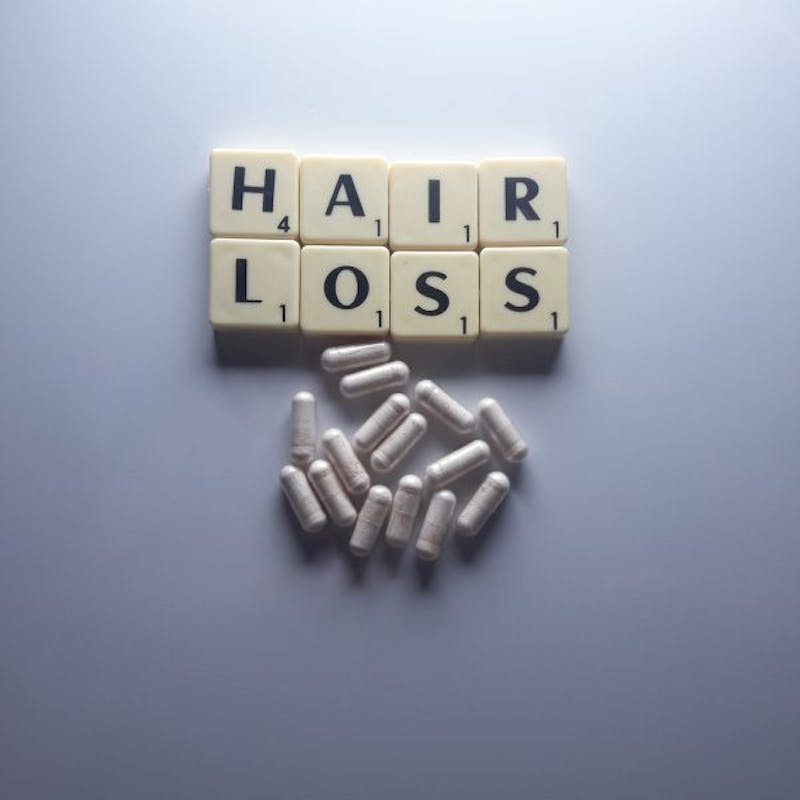
Hair loss is one of the most natural things that can happen to a person. On any given day, you lose 50 to 100 older hairs that are being replaced by new hair. On average you have 100,000 hairs growing out of your scalp at any given time.
However, as you age, the amount of hair loss does not always get replaced with new hair growth.
According to the American Hair Loss Association, by the age of thirty-five two-thirds of American men will experience some degree of appreciable hair loss, and by the age of fifty, approximately 85% of men have significantly thinning hair. Although hair loss is more common among men, according to The Hair Society, 21 million women suffer from hair loss.
Causes of Hair Loss
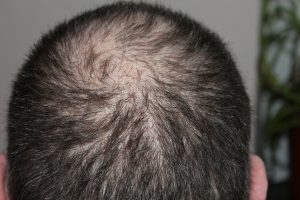 There are several different factors that cause hair loss, there is not one defined cause. There are, however, four main factors that contribute to hair loss; hormone levels, genes, age, and stress. In addition to the four main factors your diet, amount of sleep you get, alcohol consumption and where you live also play a part in hair loss.
There are several different factors that cause hair loss, there is not one defined cause. There are, however, four main factors that contribute to hair loss; hormone levels, genes, age, and stress. In addition to the four main factors your diet, amount of sleep you get, alcohol consumption and where you live also play a part in hair loss.
Since it is difficult to determine the exact reason why you are experiencing hair loss, it’s important to understand what hair loss is in order to treat it.
When men have pattern baldness and it is genetic and referred to as androgenic alopecia or androgenetic alopecia.
An autoimmune disease, alopecia areata, is another cause of hair loss that can also affect the face, scalp and other areas of the body.
When men’s hormones fluctuate on a monthly or possible daily basis, called andropause, this can be another cause for hair loss. Andropause is a male equivalent of menopause and affects the biological process, moods, and emotions in similar ways they do in women.
As men age, they experience a decrease in hormone production. Testosterone decreases significantly and can lead to hair loss and hair growth in places you didn’t have before, like your ears.
At Seattle Regenerative Medicine Center, our trained doctor can diagnose your hair loss by taking a medical history and examining the scalp and follicles. A blood test may also be ordered to see if Bioidentical Hormone Replacement Therapy (BHRT) is suited for you.
Hair Loss Does Not Only Happen to Men
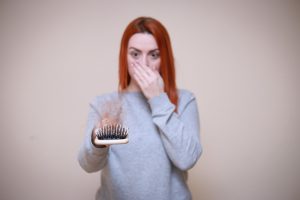 Women also suffer from hair loss. In women, an underactive thyroid can be one of the contributing factors to hair loss. Like in men, androgenic alopecia is the genetic determination of hair loss and common for women.
Women also suffer from hair loss. In women, an underactive thyroid can be one of the contributing factors to hair loss. Like in men, androgenic alopecia is the genetic determination of hair loss and common for women.
According to Harvard Health Publishing, about one-third of women experience hair loss at some point in their lives. This can increase to two-thirds of postmenopausal women. Women often suffer a greater impact from hair loss as it’s more acceptable for men to be bald than it is for women. Women can be severely affected by their emotional wellbeing and quality of life due to alopecia.
Hypothyroidism, which is a hormonal imbalance can also cause hair loss in women. Generally, symptoms of hypothyroidism develop slowly, over several years, and can severely affect a woman’s health. The symptoms are similar to those of menopause, so be sure to speak with your doctor for a diagnosis. At first, it is common to feel sluggish and late on develop other signs, including:
ConstipationDry, thinning hairFeeling cold when other people do noWeakened MusclesWeight gain, even though you are not eating more foodJoint or muscle painFeeling sad or depressedPale, dry skinSlow heart rateExtreme tirednessLess sweating than usualFace swellingA hoarse voiceMore than usual menstrual bleeding
Progesterone levels drop as women approach menopause, which can lead to an abundance of estrogen that triggers excessive hair shedding and ultimately hair loss.
Our trained doctor at Seattle Regenerative Medicine Center can diagnose your hair loss by taking a medical history and examining the scalp and follicles. Your pattern of hair loss, signs of inflammation or infection will be observed and blood tests may also be ordered to see if Bioidentical Hormone Replacement Therapy (BHRT) is suited for you.
Hormonal and Environmental Impacts
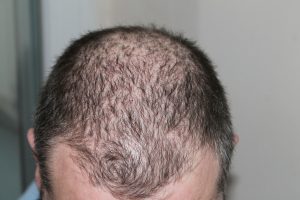 An underlying hormonal imbalance, drop in testosterone levels, can be the cause of hair loss in men. Estrogen levels can also arise from your environment and lifestyle choices. For example, canned foods, cosmetics, plastic containers, and air fresheners are examples of estrogen dominance. This form of hormone imbalance can contribute to hair loss.
An underlying hormonal imbalance, drop in testosterone levels, can be the cause of hair loss in men. Estrogen levels can also arise from your environment and lifestyle choices. For example, canned foods, cosmetics, plastic containers, and air fresheners are examples of estrogen dominance. This form of hormone imbalance can contribute to hair loss.
Everyday stressors, anxiety, and depression are also contributors to hair loss.
The quality of your hair is linked to depression. In addition, some anti-depressant medications have a side effect of hair loss.
Depression and hair loss are linked, and depression can affect the quality of your hair; hair can become dry and break very easily. Prescription anti-depressants such as Prozac can also have side effects that cause hair loss.
Emotional stress can decrease, or even stunt your hair’s normal growth cycle. Once your hair has stopped its growth cycle, it lies dormant and eventually sheds after roughly two months.
When stress is the cause of your hair loss, treat the route cause of your stress. Once your stress is alleviated, you can expect your hair growth to resume in three to six months.
Medications and Vitamins for Hair Loss
 A common treatment for hair loss is medication, but that is not always the best option.
A common treatment for hair loss is medication, but that is not always the best option.
Medications like minoxidil, are found to stimulate hair growth in places it had been previously lost. However, it can not restore the full density of your lost hair and is not a quick fix taking at least four months or longer to show a difference. It also requires consistent use or you will begin to have hair loss again.
With the right vitamin regimen, it can help promote hair growth as well as increase your overall well-being.
Both vitamins and minerals can support your hair health. Vitamins A, B, C, D, and E along with zinc and fulvic acid support hair growth and maintain cell health while balancing your hormones.
How to Stop Hair Loss
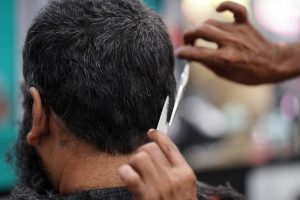 The impacts of having a hormonal imbalance are not easy to deal with. The good news is that there are treatments available that can reduce, eliminate and even reverse the symptoms.
The impacts of having a hormonal imbalance are not easy to deal with. The good news is that there are treatments available that can reduce, eliminate and even reverse the symptoms.
Seattle Regenerative Medicine Center offers science-backed vitamins and bioidentical hormone replacement therapy to maximize your holistic wellbeing.
To start the process you will have a detailed analysis of hormone levels through blood and/or urine tests followed by a treatment program customized for your needs with an individual nutritional plan, supplements, and bioidentical hormones.
During treatment, your specific needs are kept track of and assessed to make sure the right balance is reached. Both men and women can benefit from a unique plan that can halt or even reverse hair loss.
In the Greater Seattle area, Seattle Regenerative Medicine Center offers consultations for those who are struggling with hair loss. You can discuss your options and see if Bioidentical Hormone Replacement Therapy is right for you. Please contact SRMC at 1-425-454-0406 to book your consultation for BHRP Therapy in Seattle.
By Dr. Lucy Hostetter